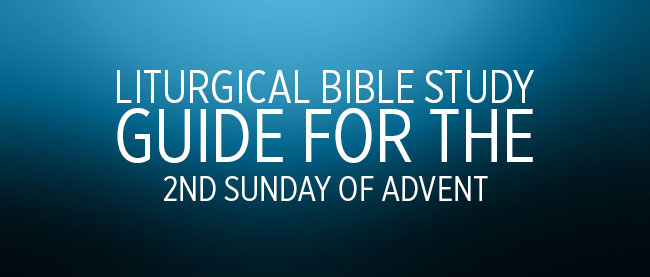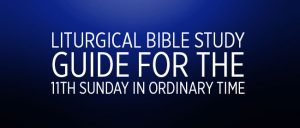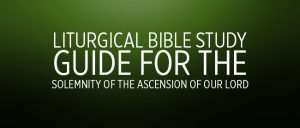Introduction
Advent is really a season in two parts, with the 1st two weeks concerned with the Lord’s coming as Judge of all at the end of time and the 2nd two weeks serving as the proximate preparation for His coming in the flesh. Our activities, like the Church’s readings, should reflect that dual character.
The Old Testament readings of Advent set the mood and theme each week. As we hear these readings, we need to look at our own dreams and expectations. How do we express them? The prophets of the Old Testament used beautiful poetic expressions, such as the lamb lying at peace with the lion, swords being beaten into plowshares, and the great banquet to come that will be presided over by the Lord. What poetic and symbolic expressions would we use to describe the age that is to come when we will know the Lord fully? What does the “Day of the Lord” mean for us? Can we identify with the dreams of the prophets? Advent is a season of anticipation.
1st Reading – Isaiah 40:1-5, 9-11
The prophet Isaiah spoke words of encouragement to his people who would be in exile years after Isaiah prophesied. He wrote “Comfort, give comfort to my people, says your God.” Isaiah lived and wrote around 750 B.C., Israel (the Northern Kingdom) was deported in 722 B.C. and Judah (the Southern Kingdom) was deported in 605-586 B.C.)
Cyrus of Persia began defeating the Babylonian armies in 538 B.C. The prophet points out the hope (which was later realized) that under Persian rule the Jewish people may be returned to their homeland (Isaiah 44-45). They will build “a highway for our God.” In this “highway builder” role they will be preparing the way for their Lord. In the gospel reading we will study today, Mark quotes this passage from Isaiah in introducing John the Baptist.
As Christians we are also called to be highway builders preparing the way for Christ to enter more fully into our lives. We are proclaimers of “glad tidings.”
During the time of Isaiah, conquered peoples were often put to work building roads for the victors. In the process of road building they would be filling in the valleys and cutting down the high places to make the road smoother. Sometimes roads would be built especially for the victorious ruler to ride in triumph. This would become the “king’s way.” The Jews in Babylon dreamed of the day when they would build their own “king’s way” back to their homeland. It would be Yahweh, their king, who would ride triumphantly at the head of their pilgrimage home. It is of this dream that Isaiah writes today in the
2nd Reading – 2 Peter 3:8-14
The epistle readings of Advent focus on life in the interim time between the resurrection and the fulfillment of the reign of Christ. We live in semi-darkness until the light of Christ dawns more fully in our lives. But we must live as if the lights will come on in their highest intensity at any moment.
Gospel – Mark 1:1-8
Our attention turns to John the Baptist, who prepared the way for Jesus. If we are to move toward the kingdom of God, we have to confront the way we live our lives. Judgment and confrontation are the seed beds of change.
“Note that Mark mentions nothing of the nativity or infancy or youth of the Lord. He has made his Gospel begin directly with the preaching of John.” [Saint Augustine of Hippo (ca. A.D. 400), The Harmony of the Evangelists 2,6,18]





